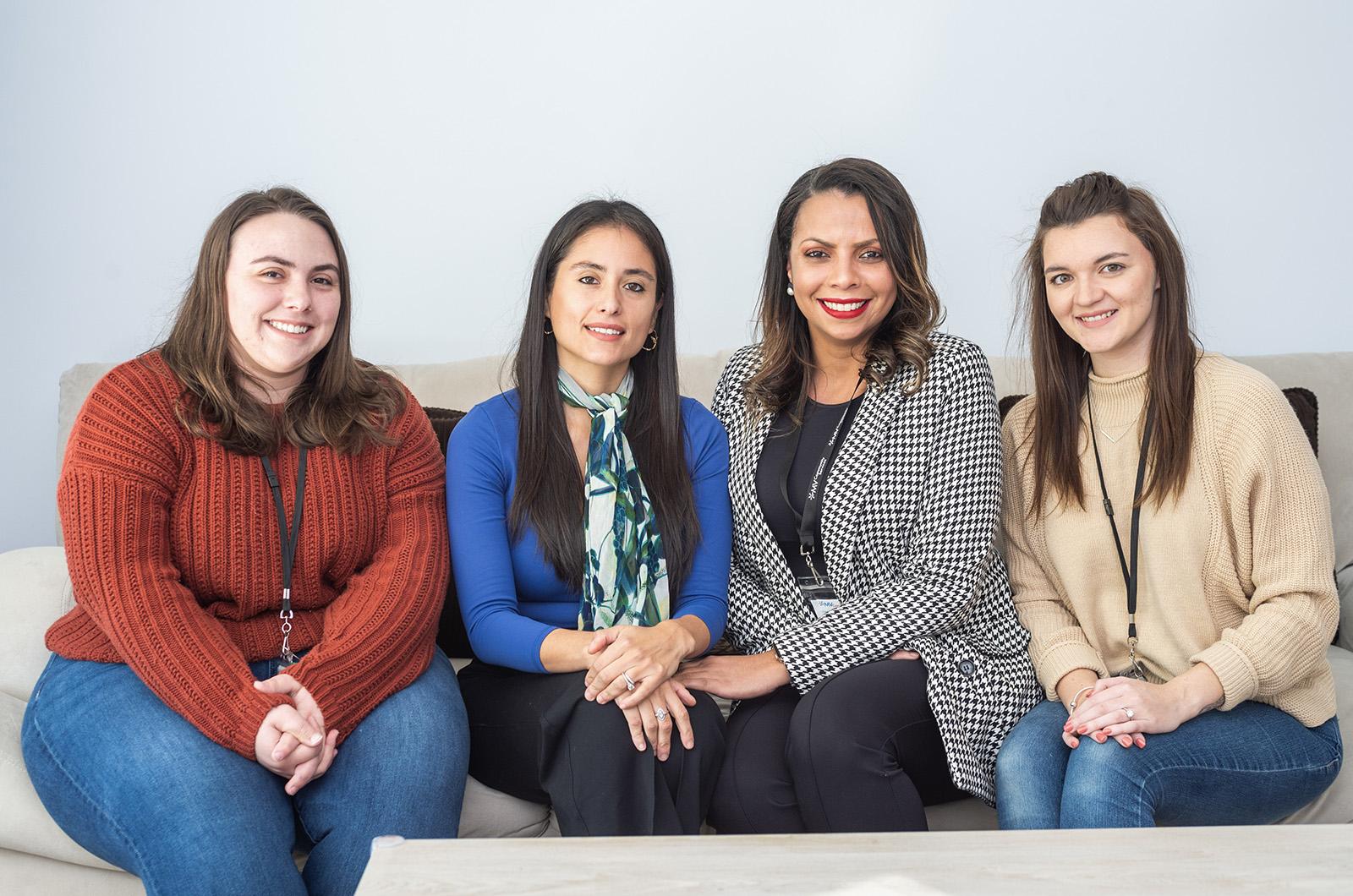Connect to End Violence, the domestic violence program and rape crisis center led by Martha’s Vineyard Community Services, wants to get a key message out to the Island: “We are here.”
“The number one thing we want people to know is that this is a safe place to go,” outreach coordinator Pricila Vilaca told the Gazette in a recent interview.
Domestic violence has long permeated the Vineyard community, particularly in the off-season, when isolation and economic pressures increase. But the pandemic and recent heightened challenges with housing and food insecurity have compounded the problem, health officials say, which is why they are focusing on outreach. To do this, Connect relies on a growing network of community partnerships and points of contact, including Friends of Family Planning of Martha’s Vineyard, run by the regional health nonprofit Health Imperatives, which often refers patients to Connect.
“In our experience, people tend to reach out to medical providers because of the personal relationship,” Health Imperatives president and CEO Julia Kihoe said. “We’re often working with the same people...we’re working together to provide comprehensive support. None of us are doing it alone.”
Ms. Kihoe stressed that the mental effects of trauma can affect an individual’s ability to perform in school or hold down a job later in life, making domestic violence a compounding issue. The solution, she said, requires community buy-in for an organization to be as effective as it can be.
“[Domestic violence] doesn’t just affect one person,” Ms. Kihoe said. “It affects the whole family...it affects the entire community. It requires a community response.”
"Connect’s services always begin with listening,” said program director Jennifer Neary.
“Listening isn’t passive, although it sounds passive,” Ms. Neary said. “The first step of helping someone is listening to their story and believing them, and believing that they know what’s best for themselves.”
If individuals do decide to take further action, Connect is there to lay out the options. Safety plans are most common, in which counselors encourage individuals to identify safe housing options, safe individuals to confide in, or anything else to mitigate an unsafe situation. Connect is not a women’s shelter, meaning they don’t provide housing on the premises, but Ms. Neary said that doesn’t stop them from meeting individuals’ needs.
“It would be nice [to have a shelter] down the line, but we have ways to connect people with housing,” Ms. Neary said, adding that options can include funding a stay at a hotel or referring individuals to a shelter off-Island.
Connect also works closely with local law enforcement, and provides legal and medical assistance when needed. Their services are entirely confidential, a crucial point Ms. Vilaca said, as the organization expands its outreach to the Island’s immigrant population.
“One of the most common things [an abuser] might say to someone is, ‘If you tell anyone, I’ll report you to immigration,’” Ms. Vilaca said. “We won’t do that. We don’t do that.”
Ms. Vilaca, a native Brazilian herself, serves the Island population as Connect’s counselor to the Brazilian community.
Part of the challenge of Ms. Vilaca’s work, she said, is making individuals feel safe when they are already outsiders in a culture or in a country. Language isn’t the only bridge needed. Ms. Vilaca said her firsthand knowledge of Brazilian culture, as well as what it’s like to be an immigrant on the Island, helps individuals feel comfortable going to her for help.
“Marriage looks different in Brazil...the man is expected to be the head of the household, the provider,” she said. “Part of my work is working through that with people and telling people that they did the right thing in coming for help.”
Connect is also reaching out to the local schools to help children and teens develop healthy relationship skills, said education and prevention coordinator, Morgan Beausoleil.
“In the beginning, we focus a lot on diversity and respect,” said Ms. Beausoleil said. “We talk about healthy relationships of all kinds to get that foundation...including healthy relationships with adults, asking students to identify safe adults to come to when things don’t feel quite right.”
Ms. Beausoleil said Connect currently works with students from the fifth to twelfth grade and is working on a pilot program for fourth graders. As students get older, the curriculum starts to identify what abuse looks like, with early signs often being belittling, financial control or extreme jealousy, she said.
“My goal is to get this K-12,” she added. “I don’t yet know what that would look like, but it’s never too early to talk to kids about respect and how to treat one another.”
For older students, the SWEAR program invites juniors and seniors at the regional high school to lead discussions on healthy masculinity. The program started in 2016 and was initially intended to be male-led, but Ms. Beausoleil has seen more female students take an interest in being part of the conversation.
As part of building awareness in the community, Ms. Neary also stressed that individuals can be of help. When asked what this might look like she echoed the core tenet of Connect.
“Just listen,” she said. “Listen and believe.”
To learn more about Connect to End Violence, visit mvcommunityservices.org. To reach their 24/7 crisis hotline, call 508-696-SAFE (7233).








Comments
Comment policy »